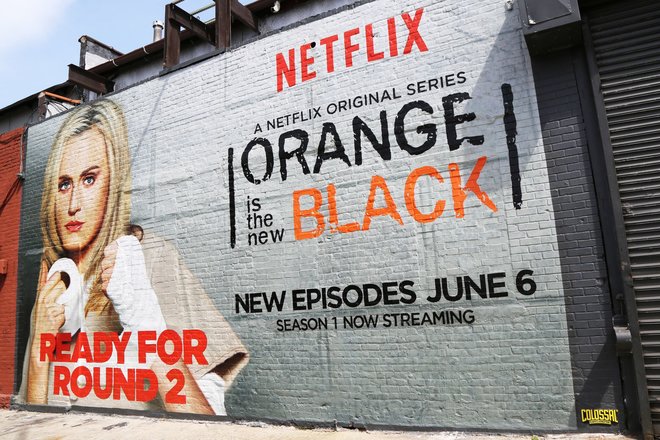Binge watching - the death of conscious media consumption
Recently, I had fallen sick. A serious cold forced me to spend my days on the couch. We like to imagine sick days as a chance to take a break on a comfy sofa with a nice cup of tea and lots of time to read and maybe even a beloved movie interrupted only by the occasional need to clear our throats. In reality, my eyes were burning, my lungs wheezing and may brain obviously restricting its activity to mere life support. So what harm could there have been in picking up the remote and watching a much-lauded series in one sitting?

I decided to watch "Stranger Things", a series that provides a lovable mix of "E.T.", "Gremlins", "Stand By Me" and other 80s movies. There wasn't much to complain about. Everything seemed solid with a little bit of friendship among outsiders, a few scares, quirky characters, some humor and a dash of "The X-Files". Yet, during episode 3 I noticed something was missing: the emotional involvement and the thrill of anticipation. We used to wait an entire week to find out whether the hero had survived (spoiler alert: he survived) or whether the two lovers finally got together but today, every episode is available on demand right away. And while I slowly and lethargically became one with the sofa, both the plot and emotions just streamed past me. What was the role of that red-haired girl again? Oh right, she was dead. I had already forgotten that detail. Maybe, binge watching wasn't for me.
Binge or marathon-watching is a phenomenon that came about with the continued success of big streaming portals. When cinemas were still calling the shots, events like the "Star Wars marathon" or the "The Godfather night" were legendary but today, everything's available in digital form 24/7. If you wanted to treat yourself to all four seasons of "Star Trek Enterprise" in one sitting, you could. Streaming portals even go so far as to automatically skip to the next episode unless you intervene. I guess they know their customers. Entire evenings, days or nights all turn into binge-watching sprees at the click of a button. That's why fans no longer measure sick days in hours but seasons. A friend of mine was visibly proud he managed to watch several seasons of "The Walking Dead" during his fall vacation. When asked about his other activities, he appeared rather tight-lipped.
Changes in watching behavior pose a real problem for traditional TV stations as viewers are no longer willing to wait for the next episode but instead turn to other media sources. And who'd want to wait for a specific time to watch their favorite series nowadays anyway? Some stations try to remedy this by offering shows online and adding new episodes every week but they're struggling hard to satisfy viewers hooked on instant access and gratification. Even Netflix learned the hard way that, once the hype around a new season dies down and every episode has been watched and discussed online, viewers immediately crave for seconds. When it became known that the new season of "Game of Thrones" won't come out until 2019, the Ashampoo flag was at half-mast for a week and there were discussions about alternative series. Are vikings an adequate replacement for dragons?
 The next season is just around the corner
The next season is just around the corner
Naturally, Netflix tracks what their viewers watch with astonishing results: one enthusiastic viewer watched the second part of "Lord of the Rings" on 261 consecutive days in 2017 while another viewed "Pirates of the Caribbean" every day. The lovesick also tend to give in to addiction with the schmaltzy "A Christmas Prince" having over 53 regular viewers since its release back in December. All this amounts to 140 million hours of series and movie watching per day and more than one billion hours every week!
The USC Institute for Creative Technologies recently found in a study that over 60% of Americans practice binge watching with the trend continuing on a global scale thanks to ubiquitous streaming portals. The younger the audience, the higher the number of permanent viewers. According to researchers from Australia, these viewers absorb less and less details, though, since our brains simply can't handle the information overload it's exposed to, e.g. when watching 5 episodes in a row. Likewise, the degree of emotional involvement, i.e. rooting for the hero, subsides with prolonged exposure. And let's be honest: this lifestyle doesn't promote social engagement or health either!
I guess it's once again time to invite a couple of friends over. We'll watch a good flick, eat microwave popcorn and nachos, have a drink and discuss both the movie and our lives. It worked back when video rental stores were still around and it'll work again. And when a new series comes out, I'll watch it spread across several weeks. Just like you shouldn't mindlessly guzzle down a good wine, a decent series deserves your full attention - not a brainless zombie on a sofa.
What I would like to know: do you sometimes catch yourself watching several episodes in a row? Do you think that's a great way to spend your free time?




